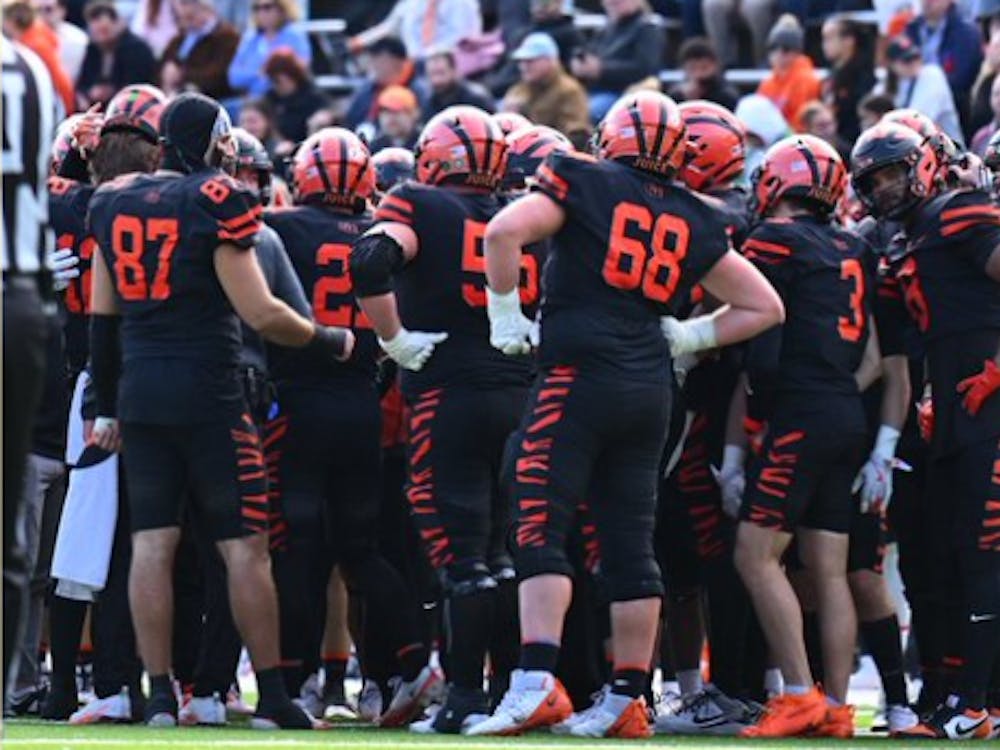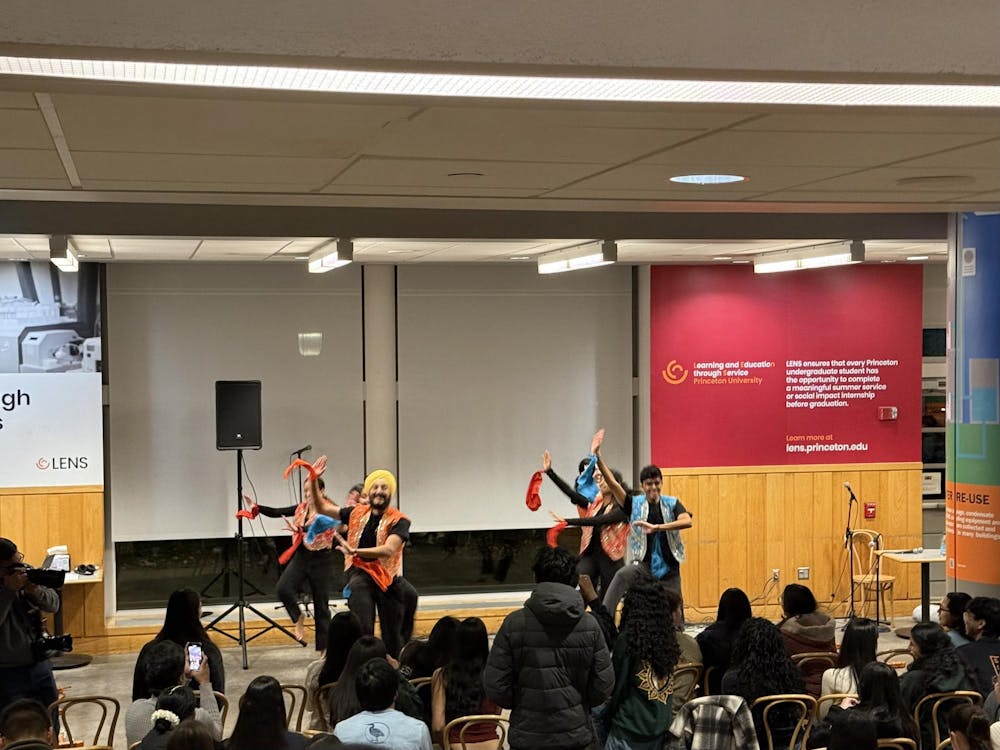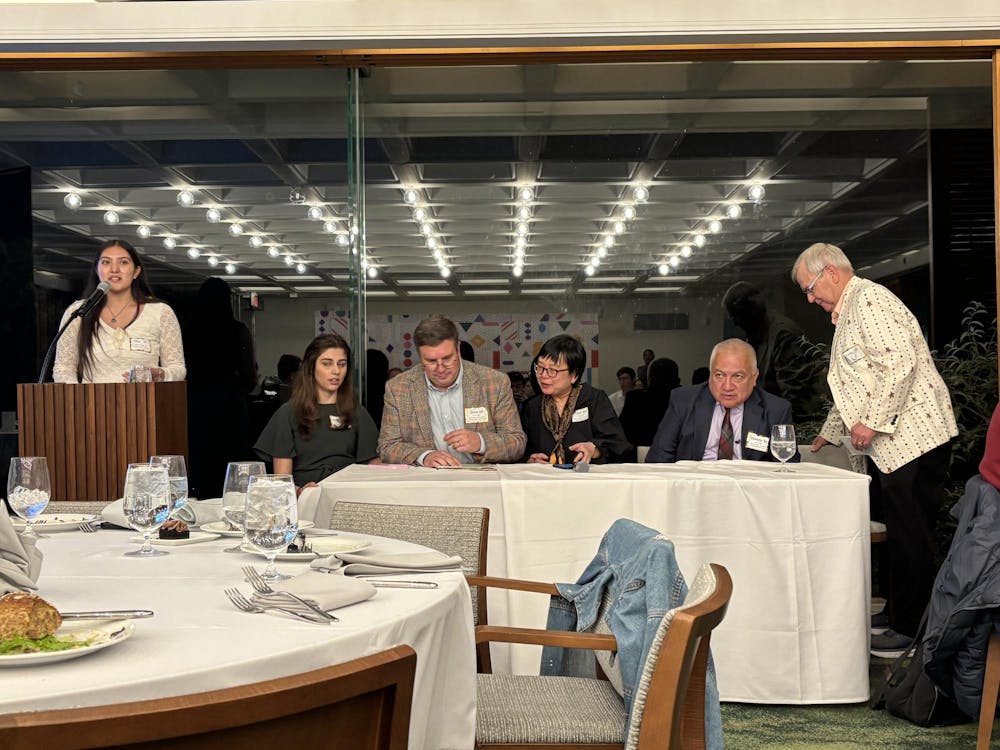“Ya se agotó,” I said, incredulous (I shouldn’t have been; it’s a weekly occurrence). It’s already run out. The marker I was dragging across the whiteboard was leaving the dingy surface whiter than it had been before I tried to explain the difference between “food” and “foot.” And we were only twenty minutes into the lesson. I ran upstairs, interrupted the Level 1 class, grabbed a handful of markers from the bottom of our bag. They were all bright colors — pink, green, orange — that I knew no one sitting more than two seats from the front of the class would be able to see.
I went back downstairs.
“Ok, vamos a intentar de nuevo,” I said. Let’s try again. They laughed, gracious as ever, this group of 15 or so people clustered around laminate-topped tables in the creaking basement of a Trenton community center. We resumed our collective struggle with the English language, this time in fluorescent green.
The Princeton students managing these English-as-a-Second-Language classes had a meeting later that week, in Princeton’s Pace Center for Civic Engagement. We had reserved the lounge space on the crumpled paper calendar that hangs on the wall, but apparently that calendar only works for other student groups, and not when the Executive Director comes to visit. She and some other important people in suits and sweater sets were reclining on the technicolor couches, and so we clustered in the back room to plan our teaching workshop and try to cobble together a summer curriculum for our students.
The walls, even in the small, gray, back room, were covered in immaculately-cleaned whiteboard paint. The markers, as we outlined our workshop and our curriculum packets, never ran out of ink.
A few months ago, Princeton held a “Celebration of Service” soirée. They didn’t call it a soirée, but that’s what it was. Everyone dressed up in suits and dresses and someone invited the directors of Princeton’s “community partners” (a phrase used without any intended irony) so that we could all sit in panel discussions and then go downstairs to a catered dinner with mini crab cakes and baby hamburgers and tiny cups of seaweed salad (which I promptly dropped all over the floor and then crawled around on my hands and knees scooping up, but I digress).
Chancellor Green Library, where all of this took place, was filled with uncomfortable people milling around in search of (a) people they knew, (b) food that didn’t require the hands of a surgeon to consume, or (c) a conversation that didn’t open with “Isn’t this such a great event?” (I know for a fact I was not the only one in search of (c) because I happened to find all but the second of these objectives).
President Eisgruber and Executive Director of the Pace Center for Civic Engagement Kimberly de los Santos both gave brief addresses. Both extolled the virtues of Princeton’s service programs, championing the depth of Princeton’s commitment to its community and urging a broad and inclusive conception of service — a notion that seems innocuous enough. Yet with such breadth comes dilution: according to Eisgruber, “Our researching and teaching in my view is itself a very important part of [Princeton’s] service mission. Part of the way we serve is through teaching and research of unsurpassed quality.” No wonder, then, the straight face with which Princeton makes its claims about the centrality of service to University life.
If every lecture, every precept, every new book published and every laboratory breakthrough is construed as “service,” Princeton is — according to the flawed but nonetheless oft-cited US News rankings — second to none.
I don’t deny that some of the academic work produced by Princeton’s scholars benefits many people in significant ways. But I think — hope — that we can draw a line somewhere between that kind of work and a group of under-caffeinated undergrads hunched over seminar tables in McCosh, hoping their preceptor doesn’t notice that they haven’t read their Rawls.
The scary truth — for the speakers at the dinner and the various camera-people pushing “community partners” out of the way in order to catch said speakers on tape — is that a narrower definition of service poses a profound challenge to the complacency that characterized “A Celebration of Service.”
Because it is not true that service, narrowly defined, is integral to the Princeton experience. It is not true that many classes have service components or are oriented towards preparing students for future service. It is easy — incredibly easy — to go four years here without engaging in meaningful service, even without consciously avoiding it.

If the University truly cares about making service integral to what Princeton is, the answer is not to dabble in lexicography and play with questions about what “service” is or is not. The answer is not to mold “service” to the contours of what the University already is and does. The molding must work in the opposite direction: Princeton, not service, must change.
Princeton does buy us new Expos. Pace does maintain the ink and toner and paper levels in the printer we use to copy our worksheets; it keeps the whiteboards on the walls gleaming and the supply of markers well-stocked. But, despite the extensive financial and administrative support Princeton provides, under its broad conception of service, it is those activities that best adhere to a more narrow, more meaningful definition of service that are always first to go when meetings run late or exams are scheduled or a professor doesn’t grant that extension on a paper.
Princeton struggles to balance the academic and administrative demands it places on students and faculty with a significant commitment to service; positing that these demands fall under the aegis of “service” is a facile response that cheapens what service is performed by the people on this campus. Princeton may not want to assume the responsibility of making service more compatible with or integral to its other programs. But rights and responsibilities go hand in hand, and for us to claim that we do so much good? That is not our right.
Kate Reed is a sophomore History major from Annapolis, Md. She can be reached at kreed@princeton.edu







